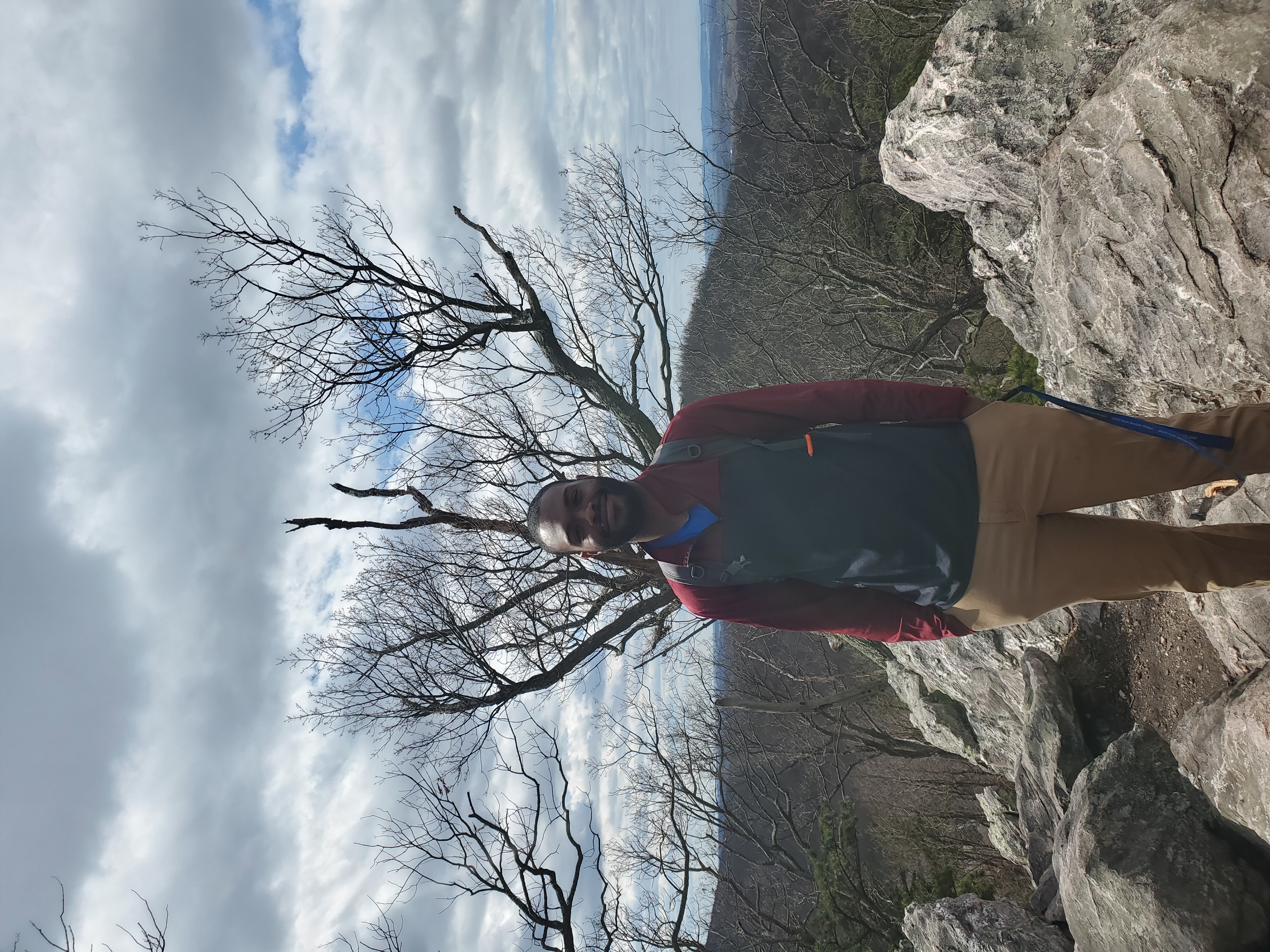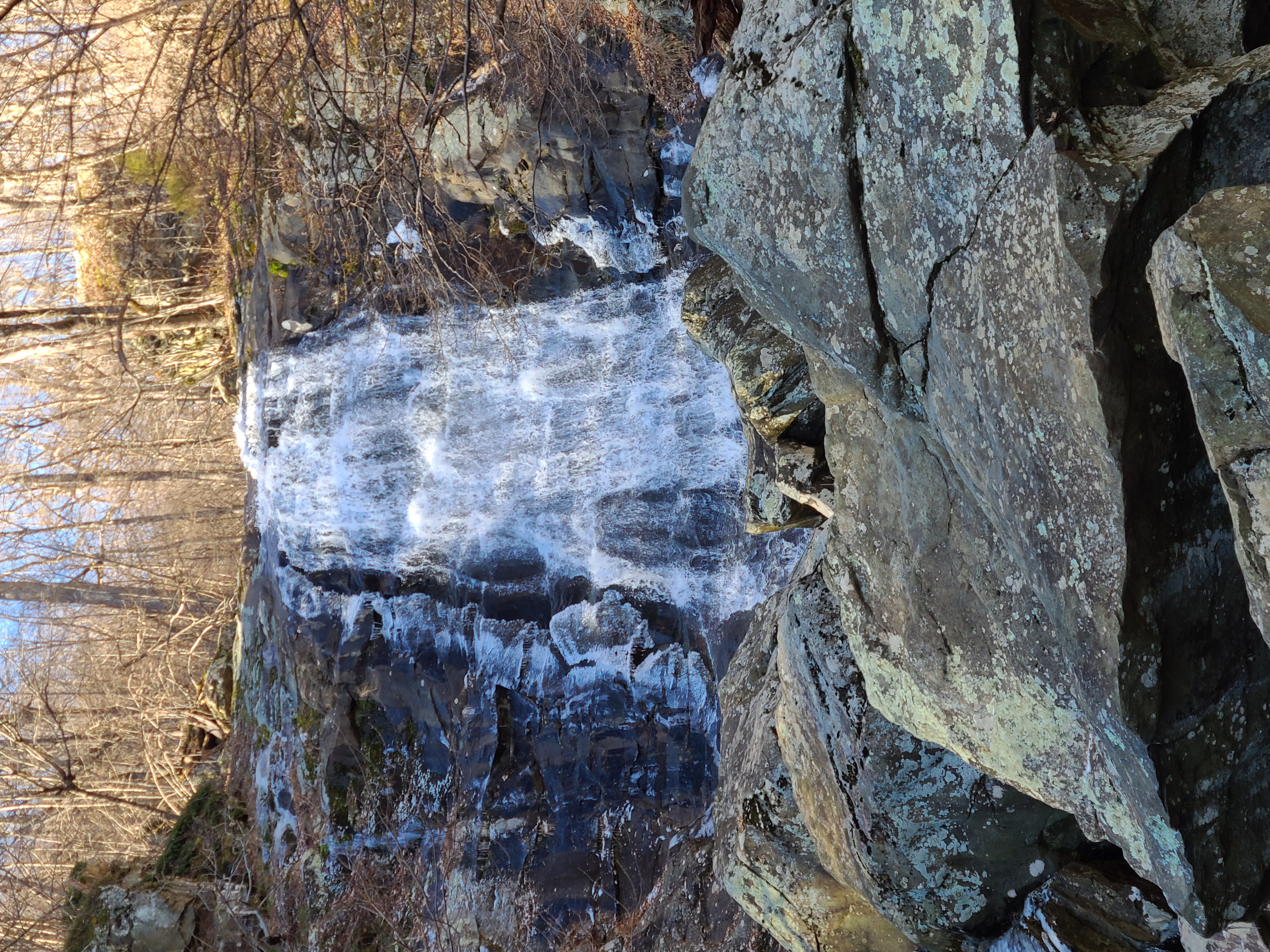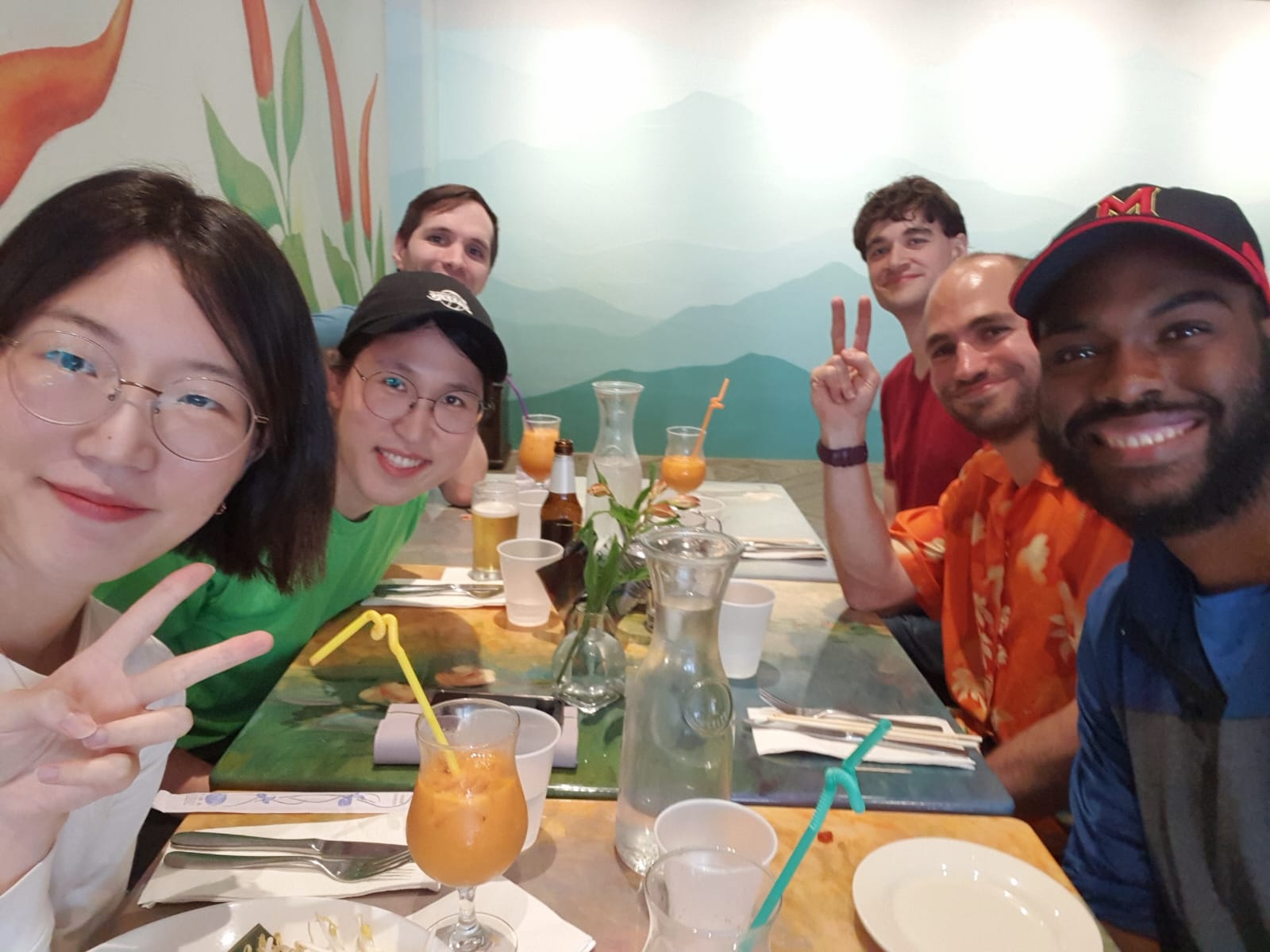Khalil Guy
 Research Area: Quantum Information Science
Research Area: Quantum Information Science
Undergraduate Institute: Fisk University
Hometown: Macon, Georgia
Why did you choose AMSC?
AMSC gives me the opportunity to explore my mathematical interests in the context of different fields. I knew that I wanted to study quantum information, but I am also able to take a variety of classes to acquire skills in many different areas. Additionally, AMSC has faculty in the Joint Center for Quantum Information and Computer Science (QuICS), which made it a very good choice for anyone interested in applied math and quantum information.
What are your research interests and why? How did you discover this interest?
My research interests are in post quantum cryptography. Specifically, I am interested in evaluating the quantum security of the symmetric key primitives such as block ciphers. I knew that I was interested in doing research in quantum information because of the internships I participated in as an undergraduate student. When I came to UMD, I was able to discover the specific area of post quantum crypto by attending talks offered throughout the semester.
What do you do in your free time to keep a work/life balance during graduate school?
I really enjoy hanging out with the other graduate students when everyone is not as busy. I try to maintain a fairly active lifestyle by playing tennis, ping pong, most other racket sports, or weightlifting. More recently, I’ve been participating in the tango classes that are offered through the Math Department. When I have more downtime, I like to play video games or watch anime.
What is your favorite thing about the greater Washington DC area?
I really enjoy the variety of food available. The area is culturally rich, and there is representation from just about anywhere among the plethora of restaurants. Additionally, the variety of things to do is actually crazy. Whether you like to hike, dance, or just engage in deep conversations with strangers, there’s something for everyone.
What advice would you give to incoming students?
I would encourage students to engage with all aspects the program has to offer. This includes attending the colloquium talks, the social events, the student-led seminars, among other things. This is a great way to meet other students in the math department, including the pure math and stat student, and to talk to faculty whom you might be interested in working with.

